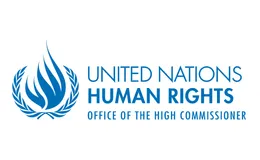

International Aid Must Not Be Abused by Junta
11 April 2025
On 28 March 2025, major quakes with magnitudes of 7.7 and 6.4 struck Myanmar and Thailand, followed by a series of aftershocks, leaving behind utter devastation amidst an already dire humanitarian crisis and a collapsing economy in war-torn Myanmar.
18 March 2025
Interactive Dialogue with the Special Rapporteur on the situation of human rights in Myanmar – Oral statement delivered by Khin Ohmar on behalf of FORUM-ASIA
04 February 2025
Online Press Conference – Global human rights network removes junta-controlled MNHRC
05 April 2025
In Myanmar, a heartless junta deepens earthquake despair with ‘collective punishment’
Statements & Press Releases

2025-04-11T16:01:10
Press Statement

2025-04-11T13:29:37
Statement on 2 years anniversary of Airstrike on Pazigyi Village, Kanbalu Township

2025-04-10T11:39:40
UN expert calls for emergency Security Council action to address ceasefire violations after devastating Myanmar earthquake
Reports

2025-03-31T16:05:31
Forced to Harm: Impacts of the State Administration Council (SAC)’s forced recruitment and enactment of the conscription law in Southeast Burma (January 2024 – February 2025)

2025-03-31T11:31:00
Monthly Overview: Indiscriminate Attacks by the Military Junta Lead to Widespread Forced Displacement and Ongoing Fears in Southeastern Burma

2025-03-25T10:33:21
2025-26 Joint Response Plan: Rohingya Humanitarian Crisis in Bangladesh
Announcements
04 April 2025
Myanmar: Human Rights Council condemns the junta, responds to the earthquake, and calls to end sale and supply of arms and jet fuel
31 March 2025
သတင်းထုတ်ပြန်ကြေညာချက် – မြန်မာနိုင်ငံရှိ ငလျင်ဒဏ်သင့် သက်ရှင်ကျန်ရစ်သူများနှင့် ထိခိုက်ခံစားရသည့် လူထုများအတွက် သဘာဝဘေးအန္တရာယ်ဆိုင်ရာ ကူညီကယ်ဆယ်ရေးအတွက် အရပ်ဘက်လူထုအဖွဲ့အစည်းများတောင်းဆို
30 March 2025
Press Statement: Civil society calls for disaster relief for earthquake survivors and affected communities in Myanmar
17 March 2025
အိတ်ဖွင့်ပေးစာ – အထူးကိုယ်စားလှယ်၏ အကျိုးစီးပွားဆိုင်ရာ ပဋိပက္ခရှိနေမှုက စုံစမ်းစစ်ဆေးမှုပြုလုပ်ရန် နှင့် ၎င်း၏လုပ်ပိုင်ခွင့်အာဏာကို အဆုံးသတ်ရန် အရေးတကြီးလိုအပ်နေမှုကို ဖော်ပြနေသည်
17 March 2025
Open letter: Special Envoy’s conflicts of interest signal urgent need for investigation and complete end of mandate

Progressive Voice is a participatory rights-based policy research and advocacy organization rooted in civil society, that maintains strong networks and relationships with grassroots organizations and community-based organizations throughout Myanmar. It acts as a bridge to the international community and international policymakers by amplifying voices from the ground, and advocating for a rights-based policy narrative.





